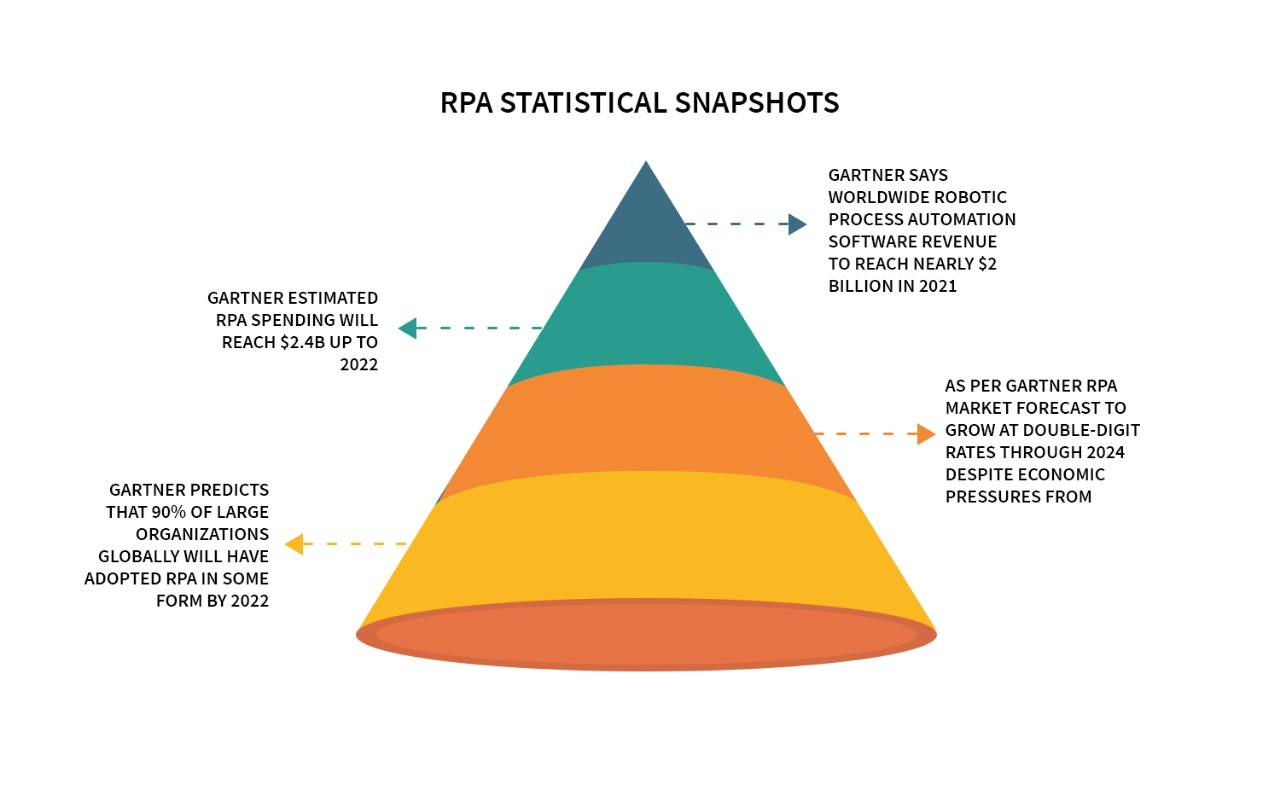When it comes to digital transformation it is considered that employees or human workers in the organization play a critical role. But as we are just coming out of pandemic it is seen that in the organizations where human workers combined with software bots or machine workforce called Robotic Process Automation, they were able to automate critical activities and ensured faster processing and increase in overall productivity. This synergy of human workforce working along with software bots will be leading the future and organizations who are able to achieve this fantastic combination will be the winners in near future in their objective enterprise digital transformation.
Good news is that most of the organizations have started to understand the future in which the software bots will play the major role. Banks and Financial institutions are playing the front role and are able to understand many use cases where RPA can be applied successfully and this system of integrating humans and software bots simplify processes, increase scalability of operations and enhance performance at enterprise level.
RPA Statistical Snapshots:
Source: Gartner
If organization has not implemented human machine partnership it will be hard and in reality impossible to complete Digital transformation as Robotic Process Automation is required to fast track digital transformation journey and plan wider digital transformation strategy
How RPA is fast tracking Digital transformation:
RPA is leveraged to automate resource-intensive, high-volume, and time-consuming processes. RPA is the first step and the simplest step in the automation in the journey towards digital transformation. Let see some of the cases how RPA really becomes the first step and most important step of automation in digital transformation:
- Eliminate duplication of efforts in working on the same service requests received through different channels such as web forms, telephone calls, apps, etc., by using RPA bots and send immediate customer acknowledgment.
- Automate pulling in data from different legacy systems for financial reporting across the board, by RPA bots, improve productivity of the Accounting team.
- Auto-filter interview applications, auto-review candidates, and screen applications by RPA bots, which are high volume, tedious, and time taking tasks involved in a staff hiring management process. Auto-process candidate notifications across all milestones.
- Automate repetitive service desk activities and present users with the ability to self-serve for common requests by RPA bots. Support key processes involved in supporting and administering users. Expedite execution processes and flag exceptions in order to facilitate human agents for taking further action
- Use RPA bots to bundle external and internal business-relevant services related to daily activities such as travel and weather sites related to business travel-related planning and improve application productivity and efficiency. Integrate online services into your web portal for easy, safe, and secure access through a proper handshake with the company IT rules.
Automation Is No Longer Optional — It’s Inevitable
RPA Implementation Key Points:
 Road Ahead- Robotic Process Automation with Artificial Intelligence:
Road Ahead- Robotic Process Automation with Artificial Intelligence:
Robotic Process Automation coming with the benefit of faster ROI and relatively easy implementation has led to more and more organisations across industry sectors implementing and testing the capabilities offered by RPA technology. RPA’s technology are mainly implemented for repetitive activities and back-end processes with high volumes and frequency, but as the complexity and the processes becoming more and more adaptive, organizations are not only looking for automation, employees are looking for bots as assistants who combined with AI and Natural language processing can become smart assistant to them. With Integration of cognitive technologies like artificial intelligence, machine learning now bots are expected to handle complex transactions reliant on human expertise and intervention. Organizations are looking for bots with machine learning capabilities so to enable constant learning, thus taking smarter decision and improve process efficiency.
RPA should be an integral part of your digital transformation strategy. Looking at RPA as just a way to build and deploy bots to cut manual labor is just half the story. Instead, businesses must use RPA to restructure CoEs, drive business processes automation, and realign digital touchpoints to improve customer experience.
Fueling Digital Transformation with Robotic Process Automation


 Anurag Dutt
Anurag Dutt
